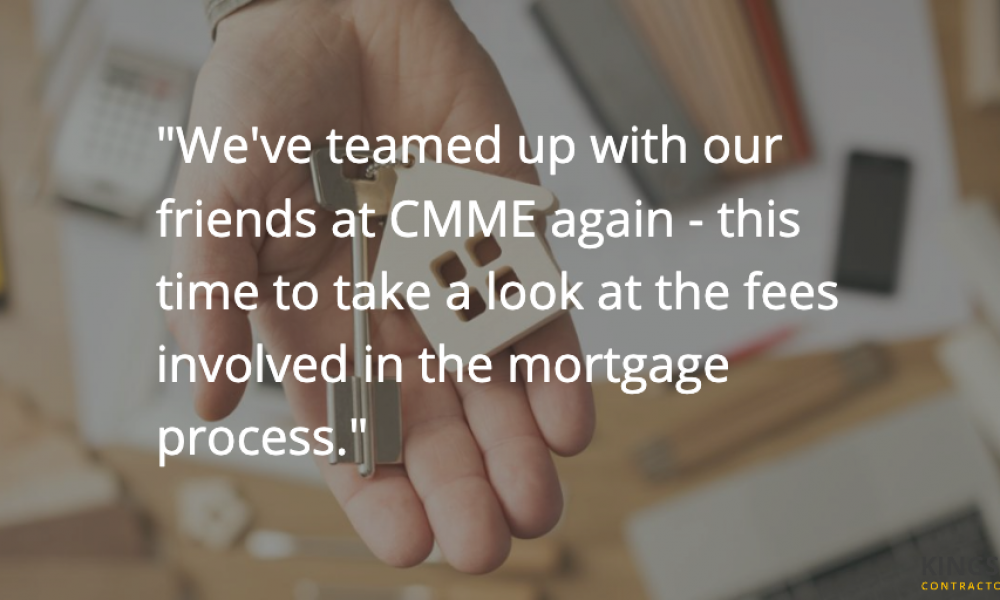We’ve already spoken about the steps self-employed workers should take in order to make the process of getting a mortgage simpler and easier. But it may well be the case that you’re so focused on getting over the first hurdle that you forget what’s just behind it.
That’s why we’ve teamed up with the good people at CMME again – this time to take a look at the fees involved in the mortgage process. Whether you’re a first time buyer with no idea of what’s ahead or a seasoned pro getting ready for another round, this post will serve as a good indicator of what to expect.
Before we begin it’s worth noting that it is possible to add some of these costs to your mortgage, but many individuals choose to pay them upfront. Regardless of which scenario works best for you, here are the fees you can expect:
Arrangement Fees:
Also known as a product fee or a completion fee, an arrangement fee is the fee the lender charges for setting up your mortgage. The amount you pay depends on a number of variables – from mortgage scheme, to rate, to lender.
Valuation Fees:
Luckily, the names of most of the fees included in the mortgage process are fairly self-explanatory. The valuation fee is no different. It is the fee the lender charges for carrying out a valuation of the property.
The valuation is done in order to reassure the lender that the property is a solid asset to lend against. The final fee will vary depending on the lender as well as the value of the property itself.
Legal Fees:
Another relatively simple one. The legal fee is the fee a solicitor or conveyancer will charge for the legal work they carry out. The cost will cover conveyancing and searches on the property, but will vary depending on the solicitor, the property, and the type of buyer you are.
Stamp Duty:
A little more complex. You’ve probably heard Stamp Duty mentioned over and over again by politicians, especially around Budget time. But what exactly does it mean for you?
As of 22nd November 2017, the government announced a stamp duty relief for first-time buyers – if the property purchase price is below £300,000, then you won’t have to pay any stamp duty at all (SDLT).
If the property is valued at over £300,000 but still comes in below £500,000 then you’ll be required to pay 5% of the purchase price. This applies in England and Northern Island, but it’s worth noting that there are different transaction taxes to pay in Scotland and Wales.
Want more advice on how to go about getting the right mortgage in place as a contractor? Head on over to our friends at CMME – dedicated to supporting Britain’s growing community of independent professionals.
Kingsbridge are not authorised to offer regulated mortgage advice. Kingsbridge are introducers to CMME.
Your home may be repossessed if you do not keep up repayments on your mortgage.
CMME is a trading name of CMME Mortgages and Protection Limited. Authorised and regulated by the Financial Conduct Authority (FCA reg. 414798). Registered in England No. 04886692. Registered Office: Albany House, 5 Omega Park, Alton, Hampshire, GU34 2QE. Please be aware that Commercial Mortgages, Overseas Mortgages and some Buy To Let Mortgages are not regulated by the Financial Conduct Authority. Calls may be recorded for training and security purposes and to improve the quality of our service.
